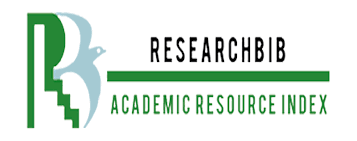Benefícios da intervenção para transtorno de estresse pós-traumático em soldados. Uma revisão sistemática
DOI:
https://doi.org/10.35622/j.rep.2023.01.003Palavras-chave:
bem-estar, militares profissionais, revisão sistemática, soldados, PTSDResumo
Antecedentes: Hoje em dia, o Exército, composto por Terra, Ar e Mar, exige um trabalho constante ao serviço da nação, sendo o primeiro dever dos militares a prestação permanente da defesa nacional. Consequentemente, seus membros têm que enfrentar várias situações estressantes durante sua carreira profissional. Objetivo: Identificar, por meio de uma revisão sistemática, a influência dos programas de intervenção sobre o Transtorno de Estresse Pós-Traumático (PTSD) no pessoal militar profissional. Materiais e métodos: Revisão sistemática em cinco bancos de dados multidisciplinares usando duas fórmulas de busca em inglês e espanhol, seguindo as recomendações da Cochrane e as fases do guia PRISMA. A seleção dos estudos foi feita por duas leituras, garantindo a completude e reprodutibilidade. Resultados: Dois estudos com um total de N = 263 participantes foram incluídos. Os resultados mostram uma relação entre a participação na Área de Operações (AO) e o PTSD no pessoal militar profissional. Conclusão: O PTSD afeta negativamente a saúde física e psicológica do soldado. Conseqüentemente, é relevante intervir através de programas para reduzir o PTSD. Finalmente, é destacada a importância da EI, resiliência e apoio, tanto familiar quanto social, para mitigar os efeitos do PTSD.
Estadísticas del Artículo
Referências
Arslan, G. (2021). Psychological maltreatment predicts decreases insocial wellbeing through resilience in college students: A conditional process approach of positive emotions. Current Psychology. https://doi.org/10.1007/s12144-021-01583-0 DOI: https://doi.org/10.1007/s12144-021-01583-0
Ashbaugh, A. R., Houle-Johnson, S., Herbert, C., El-Hage, W., y Brunet, A. (2016). Psychometric validation of the english and French versions of the posttraumatic stress disorder checklist for DSM-5 (PCL-5). PLoS ONE, 11, e0161645. https://doi.org/10.1371/journal.pone.0161645 DOI: https://doi.org/10.1371/journal.pone.0161645
Au-Yeung, C. S., Chao, R. F., Hsu, y L.Y. Why It Is Difficult for Military Personnel to Quit Smoking: From the Perspective of Compensatory Health Beliefs. International Journal of Environmental Research and Public Health, 18(22), 12261. https://doi.org/10.3390/ijerph182212261 DOI: https://doi.org/10.3390/ijerph182212261
Azilah, N. L., Devi, I., y Zainal, N. (2020). The Relationship between Emotional Intelligence (EI) and the Malaysian University English Test (MUET) Performance among Technical Students. International Journal of Learning, Teaching and Educational Research, 19(7), 280-297. https://doi.org/10.26803/ijlter.19.7.16 DOI: https://doi.org/10.26803/ijlter.19.7.16
Belrose, C., Duffaud, A. M., Dutheil, F., Trichereau, J., y Trousselard, M. (2019). Desafíos asociados con la reintegración civil de soldados con TEPT crónico: un nuevo enfoque que integra recursos psicológicos y valores en la reapropiación de acción. Psiquiatría Frontal, 9, 737. https://doi.org/10.3389/fpsyt.2018.00737 DOI: https://doi.org/10.3389/fpsyt.2018.00737
Blevins, C. A., Weathers, F. W., Davis, M. T., Witte, T. K., y Domino, J. L. (2015). The posttraumatic stress disorder checklist for DSM-5 (PCL-5): Development and initial psychometric evaluation. Journal of Traumatic Stress, 28(6), 489-98. https://doi.org/10.1002/jts.22059 DOI: https://doi.org/10.1002/jts.22059
Bohórquez-Borda, D., Gómez-Villaraga, D., Pérez-Cruz, D., y García-Rinción, L. (2022). Desregulación emocioinal y nivel de riesgo por consumo de sustancias psicoactivas en estudiantes universitarios colombianos. CES Psico, 15(3), 115-132. https://doi.org/10.21615/cesp.6159 DOI: https://doi.org/10.21615/cesp.6159
Bui, E., Zakarian, R. J., Laifer, L. M., Sager, J. C., Chen, Y., Cohen, S., y Ohye, B. (2017). Psychometric properties of the Parenting Sense of Competence Scale in treatment-seeking post-9/11 veterans. Journal of Child and Family Studies, 26. 464-470. https://doi.org/10.1037/a0019405 DOI: https://doi.org/10.1007/s10826-016-0580-9
Constitución Española (1978). Boletín Oficial del Estado, de 29 de diciembre, número 311.
Cortellazzo, L., Bonesso, S., Gerli, F., y Pizzi C. (2021). Experiences that matter: Unraveling the link between extracurricular activities and emotional and social competencies. Frontiers in Psychology, 12, 659526. http://dx.doi.org/10.1007/10.3389/fpsyg.2021.659526 DOI: https://doi.org/10.3389/fpsyg.2021.659526
Currier, J. M., McDermott, R. C., y Sims, B. M. (2016). Patterns of help-seeking in a national sample of student veterans: A matched control group investigation. General Hospital Psychiatry, 43, 58-62. http://dx.doi.org/10.1016/j.genhosppsych.2016.08.004 DOI: https://doi.org/10.1016/j.genhosppsych.2016.08.004
Drew, D. A., Weiner, D. E., y Sarnak, M. J. (2019). Cognitive deficits are associated with functional impairment in severely depressed patients. American Journal of Kidney Diseases, 74(6), 782-790. https://doi.org/10.1053/j.ajkd.2019.05.017 DOI: https://doi.org/10.1053/j.ajkd.2019.05.017
Engelhard, I. M., Van Den Hout, M., Weerts, J., Hox, J. J., y Van Doornen, J. P. (2011). Un estudio prospectivo de la relación entre el estrés postraumático y síntomas de salud física. Revista Universalud, 1, 30-35. http://ojs.unisangil.edu.co/index.php/revistauniversalud/article/view/192
Flood, A., y Keegan, R. J. (2022). Cognitive resilience to psychological stress in military personnel. Frontiers in Psychology, 13, 1-12. https://doi.org/3389/fpsyg.2022.809003 DOI: https://doi.org/10.3389/fpsyg.2022.809003
Fortney, J. C., Curran, G. M., Hunt, J. B., Cheney, A. M., Lu, L., Valenstein, M., y Eisenberg, D. (2016). Prevalence of probable mental disorders and help-seeking behaviors among veteran and non-veteran community college students. General Hospital Psychiatry, 38(1), 99-104. http://dx.doi.org/10.1016/j.genhosppsych.2015.09.007 DOI: https://doi.org/10.1016/j.genhosppsych.2015.09.007
García, P. A. (2019). La inteligencia emocional y su impacto en el desempeño laboral. Revista Caribeña de Ciencias Sociales. En línea. https://www.eumed.net/rev/caribe/2019/03/inteligencia-emocional-laboral.html
Hammer, J. H., Vogel, D. L., y Heimerdinger-Edwards, S.R. (2013). Men’s help seeking: Examination of differences across community size, education, and income. Psychology of Men & Masculinity, 14(1), 65-75. http://dx.doi.org/10.1037/a0026813 DOI: https://doi.org/10.1037/a0026813
Hays, R. D., Edelen, M. A., Rodriguez, A., y Herman, P. (2021). Support for the Reliability and Validity of the National Institutes of Health Impact Stratification Score in a Sample of Active-Duty U.S. Military Personnel with Low Back Pain. Pain Medicine, 22(10), 2185-2190. http://dx.doi.org/10.1093/pm/pnab175 DOI: https://doi.org/10.1093/pm/pnab175
Hernández, E., y García, M. (2021). Benefits of PsyCap Training on the Wellbeing in Military Personnel. Psicothema, 33(4), 536-43. http://dx.doi.org/10.7334/psicothema2021.151 DOI: https://doi.org/10.7334/psicothema2021.151
Highhouse, S., Doverspike, D., y Guion, R. M. (2015). Essentials of personnel assessment and selection. Routledge. DOI: https://doi.org/10.4324/9781315690667
Howard, A., Agathos, J. A., Phelps, A., Cowlishaw, S., Terhaag, S., Arjmand, H. A., Armstrong, R., Berle, D., Steel, Z., Brewer, D., Human, B., Herwig, A., Wigg, C., Kemp, P., Wellauer, R., y O’Donnell, M. L. (2021). Prevalence and treatment implications of ICD-11 complex PTSD in australian treatment-seeking current and ex-serving military members. European Journal of Psychotraumatology, 12(1), 1-13. https://doi.org/10.1080/20008198.2020.1844441 DOI: https://doi.org/10.1080/20008198.2020.1844441
Irizar, P., Stevelink, S. A., Pernet, D., Gage, S. H., Greenberg, N., Wessely, S., Goodwin, L., y Fear, N. T. (2021). Probable post-traumatic stress disorder and harmful alcohol use among male members of the british police forces and the british armed forces: A comparative study. European Journal of Psychotraumatology, 12(1), 1-15. https://doi.org/10.1080/20008198.2021.1891734 DOI: https://doi.org/10.1080/20008198.2021.1891734
Jaeger, J, Berns, S, Uzelac, S, y Davis-Conway, S. (2006). Neurocognitive deficits and disability in major depressive disorder. Psychiatry Research, 145(1), 39-48. https://doi.org/10.1016/j.psychres.2005.11.011 DOI: https://doi.org/10.1016/j.psychres.2005.11.011
Jha, A. P., Zanesco, A. P., Denkova, E., Morrison, A. B., Ramos, N., Chichester, K., Gaddy, J. W., y Rogers, S. L. (2020). Bolstering cognitive resilience via train-the-trainer delivery of mindfulness training in applied high-demand settings. Mindfulness, 11(3), 683-97. https://doi.org/10.1007/s12671-019-01284-7 DOI: https://doi.org/10.1007/s12671-019-01284-7
Jones, C., Smith-MacDonald, L., Nancy, V. V., VanderLaan, A., Kaneva, Z., Dunleavy, R. S., Hamilton, T., Vermetten, E., y Bremault-Phillips, S. (2022). Therapist and operator experiences utilizing multi-modal motion-assisted memory desensitization and reconsolidation (3MDR) for treatment of combat related posttraumatic stress disorder amongst military and veteran populations. European Journal of Psychotraumatology, 13(1), 1-11. https://doi.org/10.1080/20008198.2022.2062996 DOI: https://doi.org/10.1080/20008198.2022.2062996
Koebach, A., Carleial, S., Elbert, T., Schimitt, S., y Robjant, K. (2021). Treating trauma and aggression with narrative exposure therapy in former child and adult soldiers: A randomized controlled trial in Eastern DR Congo. Journal of Consulting and Clinical Psychology, 89(3), 143-155. https://doi.org/10.1037/ccp0000632 DOI: https://doi.org/10.1037/ccp0000632
Ley 39/2007, de 19 de noviembre, de la carrera militar.
Ley Orgánica 5/2005, de 17 de noviembre, de la Defensa Nacional.
Maglione, M. A., Chen, C., Bialas, A., Motala, A., Chang, J., Akinniranye, G., y Hempel, S. (2022). Stress Control for Military, Law Enforcement, and First Responders: A Systematic Review. RAND Health Quarterly, 9(3), 20. https://www.ncbi.nlm.nih.gov/pmc/articles/PMC9242555/
Martínez-Cuazitl, A., Martínez-Salazar, I. N., Maza-De La Torre, G., García-Dávila, J. A., Montelongo-Mercado, E. A., García-Ruíz, A., Noyola-Villalobos, H. F., García-Araiza, M. G., Hernández-Díaz, S., Villegas-Tapia, D. L., Cerda-Reyes, E., Chávez-Velasco, A. S., y García-Hernández, J. S. (2022). Burnout Syndrome in a Military Tertiary Hospital Staff during the COVID-19 Contingency. International Journal of Environmental Research and Public Health, 19(4), 2229. https://doi.org/10.3390/ijerph19042229 DOI: https://doi.org/10.3390/ijerph19042229
McBride, D., Samaranayaka, A., Richardson, A., Gardner, D., Shepherd, D., y Wyeth, E. (2022). Factors associated with self-reported health among New Zealand military veterans: a cross-sectional study. BMJ Open, 12(5), e056916. https://doi.org/10.1136/bmjopen-2021-05691 DOI: https://doi.org/10.1136/bmjopen-2021-056916
McGaw, V. E., y Reupert, A. E. (2022). Do Not Talk About That Stuff": Experiences of Australian Youth Living With a Veteran Parent With PTSD. Traumatology, 28(1), 24-30. https://doi.org/ 10.1037/trm0000317 DOI: https://doi.org/10.1037/trm0000317
McKinnon, M. C., Boyd, J. E., Frewen, P. A., Lanius, U. F., Jetly, R., Richardson, J. D., y Lanius, R. A. (2016). A review of the relation between dissociation, memory, executive functioning and social cognition in military members and civilians with neuropsychiatric conditions. Neuropsychologia, 90, 210-234. https://doi.org/10.1016/j.neuropsychologia.2016.07.017 DOI: https://doi.org/10.1016/j.neuropsychologia.2016.07.017
Moher, D., Shamseer, L., Clarke, M., Ghersi, D., Liberati, A., Petticrew, M., Shekelle, P., Stewart, L. A., y PRISMA-P Group (2015). Preferred reporting items for systematic review and meta-analysis protocols (PRISMA-P) 2015 statement. Systematic Reviews, 4(1), 1. https://doi.org/10.1186/2046-4053-4-1 DOI: https://doi.org/10.1186/2046-4053-4-1
Molero, M. M., Pérez-Fuentes, M. C., Barragán, A. B., Soriano, J. G., Oropesa, N. F., Sisto, M., y Gázquez, J. J. (2020). Mindfulness in Family Caregivers of Persons with Dementia: Systematic Review and Meta-Analysis. Healthcare, 8, 193. https://doi.org/10.3390/healthcare8030193 DOI: https://doi.org/10.3390/healthcare8030193
Molero-Jurado, M. M., Pérez-Fuentes, M. C., Soriano, J. G., Tortosa, B. M., Oropesa, N. F., Simón-Márquez, M. D., y Gázquez-Linares, J. G. (2020). Personality and job creativity in relation to engagement in nursing. Annals of Psychology, 36(3), 533-542. https://doi.org/10.6018/analesps.405391 DOI: https://doi.org/10.6018/analesps.405391
Murphy, S., Elkit, A., Dokkedahl, S., y Shevlin, M. (2018). Testing competing factor models of the latent structure of post-traumatic stress disorder and complex post-traumatic stress disorder according to ICD-11. European Journal of Psychotraumatology, 9, 1-8. https://doi.org/10.1080/20008198.2018.1457393 DOI: https://doi.org/10.1080/20008198.2018.1457393
Naifeh, J. A., Capaldi, V. F., Chu, C., King, A. J., Koh, K. A., Marx, B. P., Montgomery, A. E., O'Brien, R. W., Sampson, N. A., Stanley, I. H., Tsai, J., Vogt, D., Ursano, R. J., Stein, M. B., y Kessler, R. C. (2022). Asociaciones prospectivas de caracterización de descargas militares con intentos de suicidio post-servicio activo y personas sin hogar: Resultados del estudio para evaluar el riesgo y la resiliencia en miembros del servicio-Estudio longitudinal (STARRS-LS). Military Medicine, 00, 1-11. https://doi.org/10.1093/milmed/usac232 DOI: https://doi.org/10.1093/milmed/usac232
Naifeh, J. A., Mash, H. B. H., Stein, M. B., Vance, M. C., Aliaga, P. A., y Fullerton, C. S. (2021). Sex differences in US Army suicide attempts during the wars in Iraq and Afghanistan. Medical Care, 59, 42-50. https://doi.org/10.1097/MLR.0000000000001425 DOI: https://doi.org/10.1097/MLR.0000000000001425
Park, A. H., Protopopescu, A., Poque, M. E., Boyd, J. E., O´Connor, C., Lanius, R. A., y Mckinnon, M. C. (2021). Dissociative symptoms predict severe illness presentation in Canadian public safety personnel with presumptive post-traumatic stress disorder (PTSD). European Journal of Psychotraumatology, 12, 1-12. https://doi.org/10.1080/20008198.2021.1953789 DOI: https://doi.org/10.1080/20008198.2021.1953789
Pérez-Fuentes, M. C., Molero, M. M., Mercader, I., Soriano, J. G., y Gázquez, J. J. (2020). Mindfulness for Preventing Psychosocial Risks in the Workplace: A Systematic Review and Meta-Analysis. Applied Sciences, 10(5), 1851. https://doi.org/10.3390/app10051851 DOI: https://doi.org/10.3390/app10051851
Pintado, M., y Rodríguez, V. (2019). Crónica de política exterior española (diembre 2018 – mayo 2019). Revista Electrónica de Estudios Internacionales, 37, 1-29. https://doi.org/10.17103/reei.37.17 DOI: https://doi.org/10.17103/reei.36.17
Ponce, B., Andersen, S., Karstoft, K. I., y Elklit, A. (2018). Pre-deployment dissociation and personality as risk factors for post-deployment post-traumatic stress disorder in Danish soldiers deployed to Afghanistan. European Journal of Psychotraumatology, 9, 1443672. https://doi.org/10.1080/20008198.2018.1443672 DOI: https://doi.org/10.1080/20008198.2018.1443672
Puell de la Villa, F. (2021). Modernización de las Fuerzas Armadas durante el reinado de Juan Carlos I. Araucaria, 47, 413-423. https://doi.org/10.12795/araucaria.2021.i47.18 DOI: https://doi.org/10.12795/araucaria.2021.i47.18
Ram, V., Bhakta, J. P., Roesch, S., y Millegan, J. (2021). Reducing Stress and Burnout in Military Healthcare Professionals Through Mind-Body Medicine: A Pilot Program. Military Medicine, 00, 1-10. http://dx.doi.org/10.1093/milmed/usab389 DOI: https://doi.org/10.1093/milmed/usab389
Real Decreto 96/2009, de 6 de febrero, por el que se aprueban las Reales Ordenanzas para las Fuerzas Armadas.
Shuo, Z., Xuyang, D., Xin, Z., Xuebin, C., y Jie, H. (2022). The Relationship Between Postgraduates' Emotional Intelligence and Well-Being: The Chain Mediating Effect of Social Support and Psychological Resilience. Frontiers in psychology, 13, 865025. https://doi.org/10.3389/fpsyg.2022.865025 DOI: https://doi.org/10.3389/fpsyg.2022.865025
Soriano, J. G., Pérez-Fuentes, M. C., Molero, M. M., Gázquez, J. J., Tortosa, B. M, y González, A. (2020). Beneficios de las intervenciones basadas en la atención plena para el tratamiento de síntomas ansiosos en niños y adolescentes: Metaanálisis. Revista Iberoamericana de Psicología y Salud, 11(1), 42-53. https://doi.org/10.23923/j.rips.2020.01.034 DOI: https://doi.org/10.23923/j.rips.2020.01.034
Soriano, J. G., Pérez-Fuentes, M. C., Molero, M. M., Tortosa, B. M., y González, A. (2019). Beneficios de las intervenciones psicológicas en relación al estrés y ansiedad: Revisión sistemática y meta-análisis. European Journal of Education and Psychology, 12(2), 253. https://doi.org/10.30552/ejep.v12i2.283 DOI: https://doi.org/10.30552/ejep.v12i2.283
Soriano-Sánchez, J. G. (2022). Factores psicológicos y consecuencias del Síndrome Fear of Missing Out: Una Revisión Sistemática. Revista de Psicología y Educación, 17, 69-78. https://doi.org/10.23923/rpye2022.01.217 DOI: https://doi.org/10.23923/rpye2022.01.217
Soriano-Sánchez, J. G., y Jiménez-Vázquez, D. (2022a). Predictores del consumo de alcohol en adolescentes: una revisión sistemática de estudios transversales. Revista Estudios Psicológicos, 2(4), 73-86. https://doi.org/10.35622/j.rep.2022.04.006 DOI: https://doi.org/10.35622/j.rep.2022.04.006
Soriano-Sánchez, J. G., y Jiménez-Vázquez, D. (2022b). A systematic review of the use of ICT and emotional intelligence on motivation and academic performance. Technological Innovations Journal, 1(3), 7-27. https://doi.org/10.35622/j.ti.2022.03.001 DOI: https://doi.org/10.35622/j.ti.2022.03.001
Soriano-Sánchez, J. G., y Jiménez-Vázquez, D. (2023). Innovative educational practices in higher education: a systematic review. Revista Innova Educación, 5(1), 23-37. https://doi.org/10.35622/j.rie.2023.05.002 DOI: https://doi.org/10.35622/j.rie.2023.05.002
Soriano-Sánchez, J. G., y Sastre-Riba, S. (2022). Predictores asociados al consumo de tabaco en adolescentes: una revisión sistemática. Retos, 46, 1065-1972. https://doi.org/10.47197/retos.v46.93114 DOI: https://doi.org/10.47197/retos.v46.93114
Taylor, C. L., Ivcevic, Z., Moeller, J., Menges, J. I., Reiter-Palmon, R., Brackett, y M. A. (2022). Gender and emotions at work: Organizational rank has greater emotional benefits for men than women. Sex Roles, 86(1-2), 127-42. https://doi.org/3389/10.1007/s11199021-01256-z DOI: https://doi.org/10.1007/s11199-021-01256-z
Trachik, B., Oakey-Frost, N., Ganulin, M. L., Adler, A.B., Dretsch, M. N., y Cabrera, O. A. (2021). Military suicide prevention: The importance of leadership behaviors as an upstream suicide prevention target. Suicide and Life-Threatening Behavior, 51(2), 316-324. https://doi.org/3389/10.1111/sltb.12707 DOI: https://doi.org/10.1111/sltb.12707
Vives, M. P., Arango, I., y Contreras, D. C. (2021). La inteligencia emocional en educación militar. En D.C. Contreras (Ed.), Paradigmas y experiencias de aprendizaje en la educación militar. Una respuesta a los desafíos de la educación contemporánea (pp. 169-191). Miles Doctus. DOI: https://doi.org/10.21830/9789585350663.07
Vogel, D. L., y Heath, P. J. (2016). Men, masculinities, and help-seeking patterns. En Y. J. Wong, S.R. Wester, Y.J. Wong, y S.R. Wester (Eds.), APA handbook of men and masculinities (pp. 685-707). http://dx.doi.org/10.1037/14594-031 DOI: https://doi.org/10.1037/14594-031
Publicado
Edição
Seção
Licença
Copyright (c) 2022 José-Gabriel Soriano-Sánchez (Autor/a)

Este trabalho está licenciado sob uma licença Creative Commons Attribution 4.0 International License.
La Revista Estudios Psicológicos del Instituto Universitario de Innovación Ciencia y Tecnología Inudi Perú está sobre una licencia internacional Creative Commons Atribución 4.0. Lo que permite que los archivos sean de libre acceso y distribuidos libremente.
LOS AUTORES RETIENEN SUS DERECHOS:
- Los autores retienen sus derechos de marca y patente, y tambien sobre cualquier proceso o procedimiento descrito en el artículo.
- Los autores retienen el derecho de compartir, copiar, distribuir, ejecutar y comunicar públicamente el artículo publicado en la Revista Estudios Psicológicos (por ejemplo, colocarlo en un repositorio institucional o publicarlo en un libro), con un reconocimiento de su publicación inicial.
- Los autores retienen el derecho a hacer una posterior publicación de su trabajo, de utilizar el artículo o cualquier parte de aquel (por ejemplo: una compilación de sus trabajos, notas para conferencias, tesis, o para un libro), siempre que indiquen la fuente de publicación (autores del trabajo, revista, volumen, número y fecha).



















